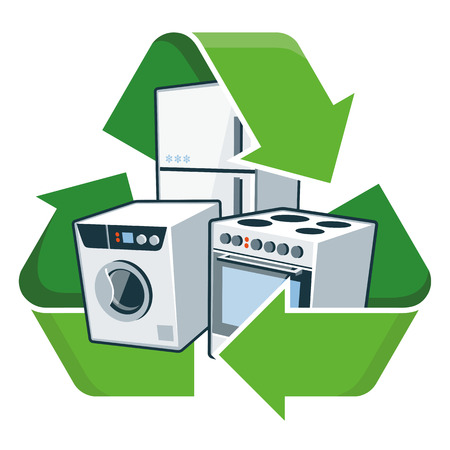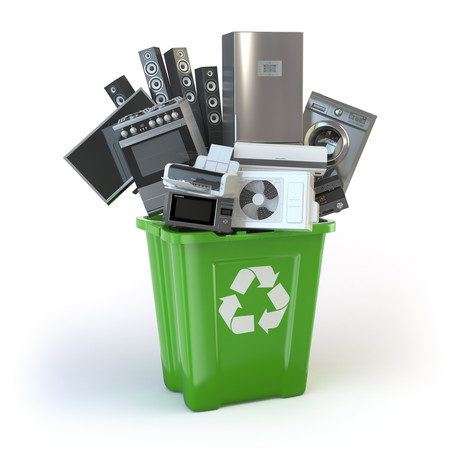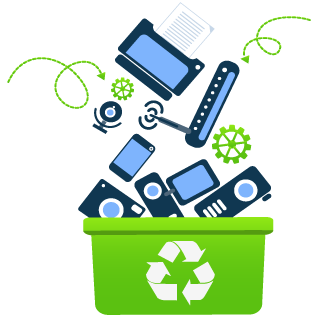E-Waste Management


What is Electronic Waste (E-Waste)?
E-waste refers to electrical and electronic equipment that people throw away or give away. This includes items that work and those that don't. If nobody buys these items, they end up in the trash. In other words, e-waste happens when people get rid of electronic products they no longer need.
E-waste is growing faster than most other types of trash. The world produced about 63.3 million tons of e-waste in 2021, with China making the most. In rich countries, including those in the Gulf Cooperation Council (GCC) area e-waste makes up around 8% of all trash from homes and businesses. Across the globe, e-waste accounts for over 5% of this kind of trash and is on the rise as more people in developing countries buy electronic products. To give you an idea, the United States created 6.92 million tons of e-waste in 2021, which works out to about 46 pounds per person.

There are many materials that can be recovered from old electronics. These materials can be used to make new products, thus reducing the need to mine for new raw materials. For instance, various metals can be recovered from computer circuit boards and other electronics ,and the plastics and glass found in computer monitors and televisions can be recycled.
Donating your old electronics plays an important role in the provision of refurbished products such as computers and mobile phones, which can be of great help to low-income families, schools, and not-for-profit organizations. It also helps individuals gain access to technology that they could not have otherwise afforded.
Considering that around90 percent of electronic equipment is recyclable, electronics recycling can play a significant role in creating employment. This is because new firms dealing with electronics recycling will form and existing firms will look to employ more people to recover recyclable materials. This can be triggered by the increase in the demand for electronics recycling.
Many electronics have toxic or hazardous materials such as mercury and lead, which can be harmful to the environment if disposed of in trashcans. Reusing and recycling electronics safely helps in keeping the hazardous materials from harming humans or the environment. For example, televisions and computer monitors are hazardous since they have lead in them. Printed circuit boards contain harmful materials such as cadmium, lead, mercury and chromium .Also, batteries in computers and other electronics may contain hazardous materials such as cadmium, mercury and lead. Instead of keeping old electronics in the house or dumping them in landfills, recycling or reusing them is an appropriate option that should be supported by individuals and organizations. Considering the benefits of electronics recycling, it is very important that people in various parts around the world embrace this concept.


E-waste recycling creates new jobs for professional recyclers and creates a second market for the recycled materials
We're here to assist you and answer any Enquiries you may have. Feel free to get in touch with us